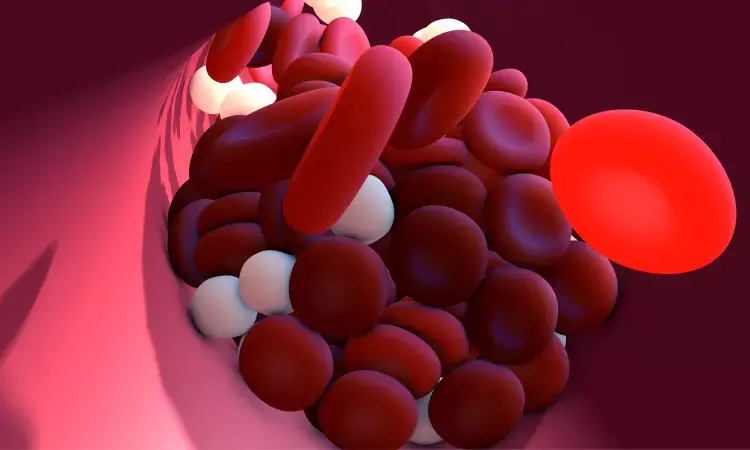- Home
- Medical news & Guidelines
- Anesthesiology
- Cardiology and CTVS
- Critical Care
- Dentistry
- Dermatology
- Diabetes and Endocrinology
- ENT
- Gastroenterology
- Medicine
- Nephrology
- Neurology
- Obstretics-Gynaecology
- Oncology
- Ophthalmology
- Orthopaedics
- Pediatrics-Neonatology
- Psychiatry
- Pulmonology
- Radiology
- Surgery
- Urology
- Laboratory Medicine
- Diet
- Nursing
- Paramedical
- Physiotherapy
- Health news
- Fact Check
- Bone Health Fact Check
- Brain Health Fact Check
- Cancer Related Fact Check
- Child Care Fact Check
- Dental and oral health fact check
- Diabetes and metabolic health fact check
- Diet and Nutrition Fact Check
- Eye and ENT Care Fact Check
- Fitness fact check
- Gut health fact check
- Heart health fact check
- Kidney health fact check
- Medical education fact check
- Men's health fact check
- Respiratory fact check
- Skin and hair care fact check
- Vaccine and Immunization fact check
- Women's health fact check
- AYUSH
- State News
- Andaman and Nicobar Islands
- Andhra Pradesh
- Arunachal Pradesh
- Assam
- Bihar
- Chandigarh
- Chattisgarh
- Dadra and Nagar Haveli
- Daman and Diu
- Delhi
- Goa
- Gujarat
- Haryana
- Himachal Pradesh
- Jammu & Kashmir
- Jharkhand
- Karnataka
- Kerala
- Ladakh
- Lakshadweep
- Madhya Pradesh
- Maharashtra
- Manipur
- Meghalaya
- Mizoram
- Nagaland
- Odisha
- Puducherry
- Punjab
- Rajasthan
- Sikkim
- Tamil Nadu
- Telangana
- Tripura
- Uttar Pradesh
- Uttrakhand
- West Bengal
- Medical Education
- Industry
Aortic femoral arterial stiffness gradient independent predictor of mortality among diabetes patients

Aortic-femoral arterial stiffness gradient or afSG may be an independent mortality predictor among diabetic populations, according to a study entitled “Associations of blood biomarkers with arterial stiffness in patients with diabetes mellitus: A population-based study.” In J Diabetes on June 16 2023.
Explaining the study background, researchers said that Arterial stiffness leads to additional cardiovascular risks in diabetic patients. It triggers the loss of vascular and myocardial compliance and promotes endothelial dysfunction.
They further said preventing arterial stiffness is a public health priority, and hence biomarkers may be highly significant in early prevention.
Considering these facts and figures, researchers in this study investigated the relationships between serum laboratory tests and pulse wave velocity (PWV) tests. They also study the associations between pulse wave velocity and all-cause mortality.
This study examined a panel of 33 blood biomarkers among diabetic populations in the Atherosclerosis Risk in Communities Study. The carotid-femoral (cfPWV) and femoral-ankle PWV (faPWV) were measured using an automated cardiovascular screening device. They calculated afSG [faPWV divided by cfPWV].
The study results could be demonstrated as follows:
- The biomarkers, including high-density lipoprotein cholesterol, glycated haemoglobin, high-sensitivity troponin T, cystatin C, creatinine, and albuminuria, significantly correlate with afSG and cfPWV among 1079 diabetic patients.
- Compared with the lowest tertile of afSG, the risk of all-cause mortality was lower in the highest tertile with a hazard ratio of 0.543.
Concluding further, they said some biomarkers related to blood glucose monitoring, myocardial injury, and renal function correlate with PWV significantly.
This demonstrates that these putative risk factors are atherosclerosis mechanisms in diabetic patients.
AfSG may be an independent predictor of mortality among diabetic populations, they said.
Further reading:
https://www.unboundmedicine.com/medline/citation/37329140/full_citation
Dr Kamal Kant Kohli-MBBS, DTCD- a chest specialist with more than 30 years of practice and a flair for writing clinical articles, Dr Kamal Kant Kohli joined Medical Dialogues as a Chief Editor of Medical News. Besides writing articles, as an editor, he proofreads and verifies all the medical content published on Medical Dialogues including those coming from journals, studies,medical conferences,guidelines etc. Email: drkohli@medicaldialogues.in. Contact no. 011-43720751


